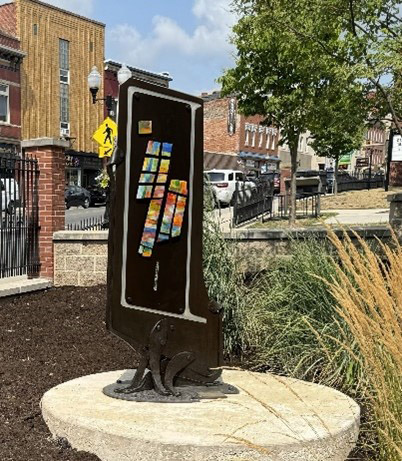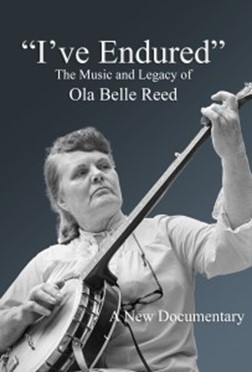Thursday Events
Thursday, September 19

Anchors of Endurance Dedication
4PM to 6PM - Join Anytime, 50 E. Main St., Frostburg
The community is invited to celebrate the recent installation of a new art piece honoring the historic African-American community of Brownsville. Anchors of Endurance: A Cartographic Tribute to Brownsville and the Park Ave Community is a vibrant rendering of the original Brownsville starting in1866 and its shifting geographic boundary as residents were displaced over several generations. This project was made possible through grant funding from the Maryland State Arts Council and Passages of the Western Potomac Heritage Area.

Film Festival
7PM - Palace Theatre, 31 E. Main St., Frostburg
With a voice born in the mountains and shaped by the hard times she lived and saw, Ola Belle Reed established herself as an influential musician, singer and songwriter of old-time mountain music. The new documentary, “‘I’ve Endured’: The Music and Legacy of Ola Belle Reed,” explores the life of this remarkable musician, singer and songwriter whose contributions have left an indelible mark on the cultural landscape. Reed’s powerful voice and lyrics spoke authentically of her rural roots, and her passionate songs found a home in the folk-revival movement of the 1960s and beyond. She left an enduring legacy.
In 1986, Reed received an NEA National Heritage Fellowship. The Library of Congress added her 1973 album, “Ola Belle Reed,” to the National Recording Registry in 2019. Her recordings are also preserved by the National Council for the Traditional Arts. Her songs have become anthems of Appalachian life, and she is widely recognized as one of the most influential bluegrass, folk and old-time musicians of all time.
The story told in “I’ve Endured” is one that resonates with themes of resilience, creativity, diversity and cultural significance. The film was produced over the last four years, weaving together archival photos, recordings and newly restored film footage of interviews and performances to present a portrait of Reed, shedding light on her significance and that of the mountain culture she embodied. New interviews with those who knew her, worked with her and were influenced by her are combined in the film to bring the past, present and future together in conversation. Production was based at the University of Maryland, Baltimore County and was funded by Maryland Traditions, a part of the Maryland State Arts Council.

Reed’s story mirrors that of more than 20 million southerners who migrated to the north and west in search of work between 1900 and 1980. This great migration, which James N. Gregory has termed the Southern Diaspora (2007), transformed American popular culture, particularly in the area of music. It was instrumental in the development of blues, jazz, gospel and R&B, as well as country and hillbilly music. Migrating from one rural setting to another on the Pennsylvania-Maryland border in the early 1930s, Reed and her family brought with them the music and traditions of the New River region of Ash County, N.C. Her grandfather, Alexander Campbell, had been a Baptist preacher and a fiddle player. Her father, a school teacher and shopkeeper, formed a family string band. As a child Reed learned to sing Appalachian ballads rooted in the traditions of England and Scotland from her grandmother and mother. When her brother Alex returned home from World War II, he joined Reed in the North Carolina Ridge Runners and other bands in recording and performing until the 1960s.
